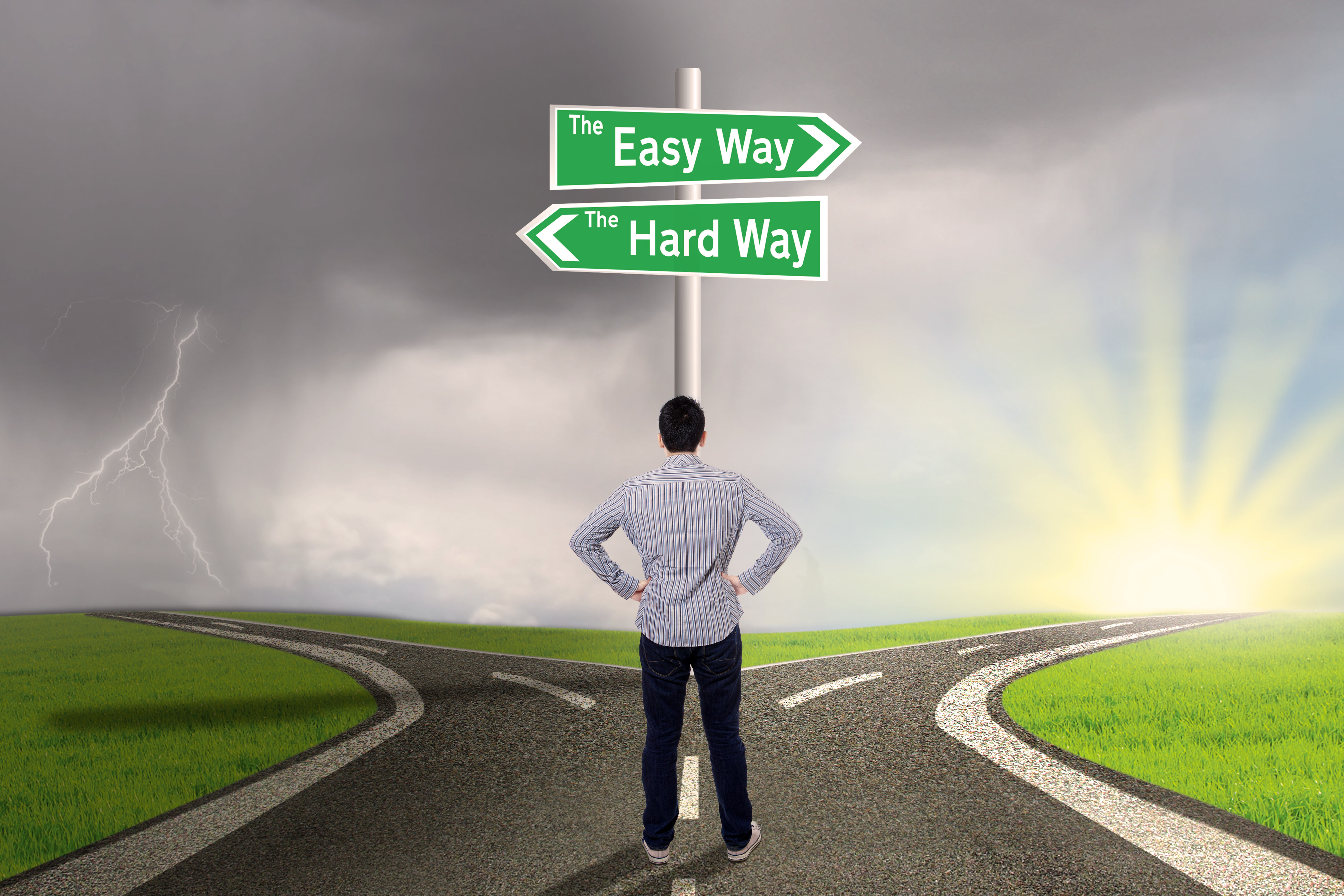Share article
The time when you most feel you don't want to do something is usually the perfect time to get started. Taking a deep breath and making the decision to follow Nike's long-held advice to just do it.
It's not always easy and it's usually not the natural decision to make, but I think when we challenge ourselves at that point of difficulty is exactly the point where we'll see the greatest return.
I've seen several things recently that have inspired me to think about this, so I've taken it as a sign that it's time to write about it and share some of these ideas and thoughts.
A Tweet
Justin Foster (@FosterThinking) tweeted a great and simple point about change that has really stuck with me:
“All positive change comes from being uncomfortable. Discipline comes from being intentionally uncomfortable.”
It's brilliant.
I'm always up for change, but the discipline part is not my favorite and this describes it perfectly. Intentionally uncomfortable – but when you make it through the discomfort of the discipline to the point that you have a routine or you understand/are effective at the new way, then the discomfort drops off and you've got a great new result.
A Book
A book we're recently read, Talent is Overrated, by Geoff Colvin discusses at length the idea of employing deliberate practice to achieve higher levels of success than we may or may not have imagined for ourselves. As a summary definition, deliberate practice is difficult, repetitive, and focused preparation of the core skills and knowledge required to perform at the highest level.
Notice that it doesn't say fun, enjoyable, or any other happy adjectives to describe this work, which is necessary for success. Because as Justin pointed out in 108 characters, it's uncomfortable.
But out of that difficulty and discomfort, combined with the commitment to work into the difficulty and challenges rather than working away from them, around them, or avoiding them all together, is where the quality results lie.
A Conversation
I recently spoke with someone who was feeling frustrated with her career and was considering changing industries. But the frustrations she felt were not unique to just her industry. As we talked through it, it became apparent that she hadn't fully engaged in and exhausted the possibilities of her current industry. This takes a huge commitment of researching and educating yourself on all things related to your industry, your company, your position, your clients, your prospects and how all of these things are interrelated and interdependent.
As we talked about the expanded opportunities that become available when you take this approach – for both herself and for her to share with clients and prospects – she started to get excited about the new possibilities available in her career.
My takeaway thoughts from this conversation: Face your frustrations by going deeper rather than walking away from it. Until you understand the whole picture in great detail, you may be taking premature action based on limited information.
An Article
And finally, an interesting article came up that kept me thinking about this. It's a post Nilofer Merchant has written on her blog where she describes the avoidance approach she has always taken to writing – reports in college, the first book she published, and now a new book in the works, which inspired this particular article. Her avoidance eventually turns into self-forced work time, and what she ultimately creates from the distraction and then the focus is amazing. She has vast experience and is a very deep and global thinker and challenges me with her thoughts all the time. But to get to the point of moving the ideas from her head to publishing requires a concerted effort to walk right into the voice telling her to go clean the kitchen instead.
Once we recognize and actually accept that those things we desire to achieve will likely require some discomfort and hard work, it's much easier to make the commitment to do the work.
But getting started has to begin by finding the catalyst to face the discomfort of doing what we don't really want to do. Don't give into that nagging voice saying you don't want to do something. Instead, take that as your opportunity to walk right into it. It's at the point of the greatest discomfort that we seem the most capable of producing extraordinary results.
Content provided by Q4intelligence
Photo by ximagination
